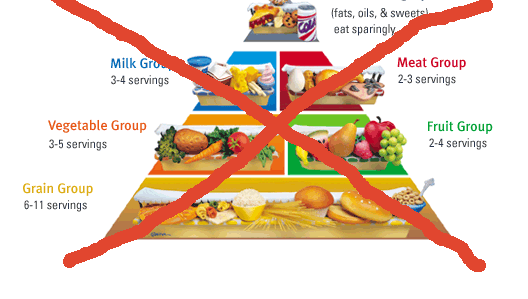Nutrition
How Much Salt?
| Way back, over a century ago, Switzerland was in a terrible health crisis. Imagine, 10% of the people walking around with their necks swollen from goiter. That’s a lot of folks. This wasn’t a small deal either. We’re talking about serious issues like children not growing properly and even mental health taking a hit. This was a real concern for the nation’s health. |

| So picture this scene: a health mystery is changing the shape of people’s futures, slowing down minds. And everyone’s throwing guesses left and right—sickness, too much booze, you name it. Enter stage right, Dr. Otto Bayard, 1918. The man had a hunch that went against the grain. He thought, “It’s not these things. It’s simpler. We need more iodine.” His solution? Almost laughably straightforward. Mix iodine with salt and get it out to those goiter hotspots. Guess what? It hit the mark. |

| Iodized salt was significant. It nearly erased goiter off the map in Switzerland. This was so dramatic, that other countries started to catch onto as well. But hold up, there’s more to this story. It’s not just about eradicating goiter. This whole iodine move might’ve given people’s IQs a boost, thanks to something called the Flynn Effect. IQs started ticking up across the board in developed countries through the 20th century. The kicker? Many experts believe that simply adding a pinch of iodine to table salt could crank up the IQ for millions by up to 15 points. Hard to believe, right? A minor adjustment in our daily intake could elevate health and brains. |

| Now, fast forward to the present, and we’ve got a bit of a situation in the U.S. Many have cut down on table salt, worried about blood pressure. Turns out, that concern might’ve been a bit overblown. The real issue isn’t the iodine-rich sodium-chloride (electrolyte) table salt we’ve been avoiding. Which is essential for maintaining health and avoiding death. No, it’s the sodium nitrate and monosodium glutamate in processed foods—stuff that’s missing iodine—that’s the problem. Found in products that are in cans, bags and boxes. Think middle of the grocery store. While trying to sidestep high blood pressure by ditching table salt, people might be skipping out on essential iodine. Meanwhile, they’re loading up on other types of salt that don’t do any favors for health. In addition, our daily table salt intake is less than half of what it was back in the 1950s. But here’s the kicker: blood pressure issues? It’s more than doubled since then. Doesn’t really add up when you think about it. Especially with all the fuss about cutting salt to keep blood pressure in check. So here’s the thing about sticking to “recommended guidelines” without thinking it through: it’s not how the whole nutrition game works for humans. Once again, take salt, for example. Salt isn’t just some random ingredient. It’s crucial for life. Our bodies need it to do a bunch of important functions, like keeping our muscles and nerves working right. So, what’s going on here? |

| Could it be that the big bad wolf in the blood pressure story isn’t the salt shaker but something else?Like, say, obesity? Obesity rates were 10% of the adult population in 1950. Today, obesity is 42% and overweight is 70% of the population of adults in the US. Obesity is a condition that’s known to crank up the pressure on our blood vessels. It’s the number one cause of all deaths each year. It’s kind of like we’ve been focusing on the wrong villain. While everyone’s been side-eyeing salt, maybe we missed the real deal. |

| Obesity brings along a whole suitcase of health issues, including: -Higher blood pressure -Diabetes -Cancer -Alzheimer’s (Dementia) -Heart Disease -And More It also kills “Quality Of Life’ – which makes life worth living in the first place. So, as we’ve been cutting down on salt, thinking it’s the hero move, it turns out, there’s a bigger picture we might be overlooking. Overweight and obesity. Get started now! I’m rooting for you every day. Derek Alessi Ph.D. |
| Available:Schedule your own Fitness & Fat Loss Consultation Booking: (Limited numbers allowed – For Mid-Life and Beyond…) |



